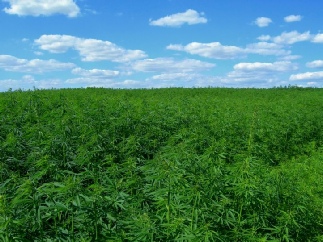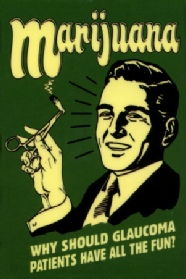

.org

Marijuana FAQ’s
by: Peter McWilliams
Q: Are people really being arrested for marijuana possession? What happens when someone is arrested?
A: If you have made it this far into this site you probably already know that there
have been almost eleven million marijuana arrests in the last thirty years. Presently,
there is another arrest every 54 seconds or so. This is a rate of over half a million
per year. Roughly eighty-five percent of these are for simple possession.
Don't be embarrassed, though, if you did not know this. Eric Schlosser, the author of three major articles in The Atlantic Monthly More Reefer Madness about marijuana prohibition, began his first article in 1994 by relating that this very question was asked by the editors of the magazine at the beginning of their discussions about the article. If these exceptionally well-informed people do not know, then why should anyone?
The fact is that the arrest numbers are almost never reported. Since NORML first
started tryin g to publicize the numbers in 1993, they have been reported only once
to my knowledge. This February, Bernard Shaw of CNN related the arrest numbers at
the end of a special about marijuana, and even gave NORML as the source. Unprecedented
and unduplicated.
g to publicize the numbers in 1993, they have been reported only once
to my knowledge. This February, Bernard Shaw of CNN related the arrest numbers at
the end of a special about marijuana, and even gave NORML as the source. Unprecedented
and unduplicated.
The fact that no one knows these numbers allows the prohibitionists to claim that not enough is being done to "fight marijuana," and to ignore the costs of prohibition. The Clinton Administration's failure to cite these numbers in its own defense when it is being accused of being "soft on marijuana" is one of the most curious aspects of this silence. When the total arrests pass the eleven million mark this year, anti-prohibitionists should demand that the media report these numbers.
As for what happens when someone is arrested, the consequences range from minor embarrassment to having their lives ruined. Obviously, much depends on who you are and where you get caught. Congressman Dan Burton's son has been caught twice with large quantities of marijuana and nothing happened to him. In his most recent Atlantic article Schlosser talks about people who have gotten life sentences for a joint. Of course, prison is not all that can happen to someone.
 In "lenient" California someone arrested in their home can lose their driver's license,
which can obviously mean the loss of a job. In other places people can lose custody
of their children. If a person is charged with cultivation of just one plant, the
consequences can be even more dire. People can and do lose their homes, farms, etc.
to "civil forfeiture."
In "lenient" California someone arrested in their home can lose their driver's license,
which can obviously mean the loss of a job. In other places people can lose custody
of their children. If a person is charged with cultivation of just one plant, the
consequences can be even more dire. People can and do lose their homes, farms, etc.
to "civil forfeiture."
For medical marijuana users the consequences can be even worse. They can be deprived of the only medicine that has given them relief from their suffering and then be forced to take pharmaceuticals that leave them debilitated and yet not help them. This is analogous to the Soviet's abuse of its political dissidents by imprisoning them in psychiatric hospitals and forcing them to take drugs that threatened their sanity. We treat our more numerous pharmaceutical dissidents even more cruelly.
The variation in the consequences of getting arrested on a marijuana charge is one of the injustices of marijuana prohibition that can only be addressed by publicizing the arrest statistics and the consequences of arrests. Inasmuch as this might undermine public support for marijuana prohibition, these facts are pro-drug and anti-child and therefore must be consigned to the memory hole. Now that you know them, you must eat your computer.
Q: Isn't there some sort of government program to provide sick people with marijuana?
A: Yes, eight people get free marijuana from the Federal government. This is one of the more bizarre aspects of the medical marijuana controversy. The government claims that marijuana has no medical value, but gives eight people marijuana. This is done under what is called an "Investigative New Drug" program, or IND.
The program was closed abruptly under the Bush Administration when it appeared that there would a large number of people with AIDS applying for the free marijuana. The then head of the Public Health Service actually tried to justify closing the program by saying that people with AIDS should not be given marijuana because they might not practice safe sex. He also said that it would send the wrong message to children. This lead to the formation of the Cannabis Buyers Clubs and greatly strengthened the movement for California Proposition 215.
Having even a small number of people use marijuana medically could still be a valuable source of information, but apparently the government does not want to know what it might find out. Some of the people in this program have glaucoma, which has been stabilized for years by their medical marijuana use. Nonetheless, the government has never made this information available to ophthalmologists. At the recent NIH Workshop on Medical Marijuana only the presence of the doctor for one of the glaucoma patients brought out the information about its use.
The existence of this program with its eight beneficiaries proves several things:
- These eight people have serious medical conditions, so marijuana clearly has medical value.
- The government has withheld the facts about this program from the medical profession. Clearly, it does not want the medical profession to have access to what can be learned from this "investigative" program.
- Countless other Americans have been deprived of a medicine that could have saved them from much suffering, blindness and even death, and the government has to know this.
Q: Is marijuana really harmless, like everyone has been saying?
A: This is an example of what logic texts call a "strawman" argument, an easily knocked down target that its opponents have set up to make it appear that they are defeating their enemy. We frequently hear prohibitionist propagandists like Dona Shalala say that the "latest research" proves that "marijuana isn't harmless, like everyone has been saying." This then refutes the arguments against arresting marijuana users, because these arguments are based on the assumption that marijuana is harmless.
There are two problems with this line.
First, as a "strawman" it misrepresents the position of the anti-prohibitionists. The arguments against arresting marijuana users are not based on the assumption that marijuana is "harmless." Nothing is harmless for everyone, under all circumstances, and at all doses.
Second, it is particularly ironic that those who say that making marijuana available for medical use would "send the wrong message to children" don't seem to hear their own words. If only "the latest research" has proven that marijuana isn't harmless, then it must be pretty safe. Besides "harmlessness" does not particularly appeal to adolescents.
Finally, consider the meaning of the words "harmless," "safe," and "dangerous." These are relative terms as we use them in everyday life. Riding a bicycle is "safe," but many people are killed in bicycle accidents every year. Drinking pure water is surely "harmless," but a few people die every year from drinking too much water. It upsets the body's electrolytic balance, and the heart stops beating. In this relative context, compared to other substances, marijuana is clearly not "dangerous," but this does not mean that it is absolutely "harmless."
This is a frequently unasked question: Is being arrested "harmless?" Actually, it can be quite "dangerous." What is the latest research on that?
Q: Many other substances have been touted as miracle cures which then turned out to be worthless or even dangerous, so how do we know that this will not be the case with marijuana?
A: This question was raised at the NIH Workshop on Medical Marijuana and in a letter to the Editor of the New England Journal of Medicine in response to his editorial calling for medical access to marijuana for the seriously ill. The comparison is usually made to Laetrile or some other purported cancer cure.
The FDA's power to require proof of efficacy is not based simply on the desire to prevent monetary fraud. If people suffering from cancer or some other serious disease take a fraudulent "cure," they may die as a consequence of not having taken a valid medical treatment. Fair enough.
However, no one is claiming that marijuana "cures" anything. What marijuana offers is symptomatic relief. It works to overcome or lessen pain, to stop nausea, to stimulate the appetite, to prevent muscle spasms, to lower eye fluid pressure in glaucoma, etc. With the partial exception of glaucoma, this symptomatic relief is immediately apparent to the patient even more than to the doctors.
In its use in relief of stress, depression or other psychological problems, the benefit may be even more subjective, but these are recognized medical conditions on which Americans spend billions of dollars every year on pharmaceuticals such as Prozac, Valium, etc.
In short, the comparison to "false cures" is simply irrelevant to the medical marijuana issue, but the fact that it is raised demonstrates a lack of understanding of the subject.
As for marijuana being "dangerous," this is a relative term. Most medications are acknowledged to be far more "dangerous" than even the most passionate prohibitionists claim marijuana to be.
Q: Why would anyone want to smoke a medicine? Isn't smoking per se bad for you?
A: "No medicine is smoked." This argument is frequently made by prohibitionists simply to dismiss the subject of medical marijuana. It is also raised by others who recognize that smoking tobacco is the greatest single preventable health risk. When we are engaged in a great crusade against "smoking," it does seem a bit odd to advocate smoking a medicine. However, there are several points about this argument that need to be considered.
Most important: marijuana does not have to be smoked. It can be drunk as a tea, eaten in foods, or inhaled as a vapor. This last point seems to be a surprise, not only to prohibitionists who do not want to know it, but also to conscientious physicians who are genuinely concerned about the effects of smoking on sick people. If marijuana is heated to a point below the point of combustion, the active ingredients vaporize and can be inhaled without the particulates that might irritate the respiratory system. Inhaling either a smoke or a vapor has two very important advantages.
First, someone who is vomiting cannot realistically be expected to swallow something to make them stop throwing up.
Secondly, the onset of the effect of inhaling is so rapid that it not only gives immediate relief, it also allows the patient to control (titrate) the dosage. This is in contrast to other means of administration, especially oral ingestion, which can require up to an hour to know whether the dosage is too much or too little. This is one of the disadvantages of Marinol, the synthetic THC pill.
2. Most medical marijuana users do not smoke very much, or for very long, and most of the risks associated with tobacco smoking are cumulative over a period of many years. At the NIH Medical Marijuana Workshop the physicians expressed their concern only about patients with chronic conditions that would require many years of smoking large amounts.
Vaporization would eliminate or greatly reduce the risks in even long term very heavy use.
It has not been established that long-term heavy use is a major health risk. The eight legal medical marijuana smokers, who smoke an average of ten joints per day, which is very heavy marijuana use, do not show any adverse health consequences as a result of this.
3. Compare the risks of long term smoking with long term intravenous injection. (If medical marijuana should not be smoked because tobacco smoking is bad for you, what do the adverse consequences of IV drug abuse tell us about injecting a medicine? "No medicine should be injected, because junkies are unhealthy?" Both are non-sequiturs, but smoking is less injurious than injecting.)
4. Regardless of the means of administration, the total effects and risks of a medication must be considered. In this regard, marijuana compares favorably in its risks with virtually every other medication.
Q: If marijuana has medical value, why isn't medically available in the Netherlands? This question was raised most recently by Gabriel Nahas on the editorial page of The Wall Street Journal.
A: The short answer is that marijuana is medically available in the Netherlands. There are doctors who prescribe it without any hindrance from the government, and their patients can either grow their own or take their prescriptions to certain coffee shops and get their marijuana at a substantial discount. The most important point is that someone in the Netherlands who has a medical condition that responds to marijuana does not have to live in fear of being arrested, nor does the physician who discusses it with the patient and prescribes marijuana for medical use.
The longer answer is that a Dutch commission recently did a very brief overview of the subject of medical marijuana and decided that there was not sufficient evidence of the medical efficacy of marijuana to include it in the national health insurance so patients could be reimbursed for their purchasing marijuana.
While the results of this review were disappointing from the anti-prohibitionist perspective, the matter is far from settled. It may be hard to fathom, but Dutch doctors seem to know less than many American doctors about the medical uses of marijuana. If one wrongly thinks of the Dutch as being "pro-marijuana," then this ruling could be misunderstood, but the fact is that Dutch doctors are a very conservative bunch, as are the Dutch people in general. It is one thing to tolerate something, it is quite something else to have it reimbursed by the national health insurance.
In any case, the question before the Dutch doctors was not whether sick people should be arrested for using marijuana. If you were to ask a Dutch doctor that question, the reaction would be emphatically negative.
Q: Isn't medical marijuana just the opening wedge to legalize marijuana generally?
A: Most of the leaders and activists in the "medical marijuana movement," including this writer, favor the complete "legalization" of marijuana for adults. That being the case, it is obvious that we hope and expect medical access to marijuana to be followed by its full "legalization." This is just common sense, but what does this prove? Consider these points:
- Our motives are irrelevant to the merits of the arguments. In fact, all of the supporters of medical marijuana whom I know favor medical access to marijuana as an end itself. We know too many sick and disabled people who benefit from medical marijuana. Do you think that only prohibitionists are sincere?
- Making something medically available does not automatically mean that it will be legalized for non-medical use. There are all sorts of drugs like morphine, etc. that have been medically available for years without being "legalized."
- People who oppose medical access to marijuana because they oppose the legalization of marijuana should decline to use any drug that they do not think should be "legal."
- Should sick people have to suffer in order to prevent the possible "legalization" of marijuana?
- Having marijuana used by large numbers of people under medical supervision will resolve once and for all the controversy over the "side effects" of marijuana. This will result in the "legalization" of marijuana only if marijuana is not found to be the terribly dangerous drug that the prohibitionists claim it to be. We are confident that this will be the outcome, and if we are right then the result will be the "legalization" of marijuana and the discrediting of those who have lied to justify the arrests of millions of people and the suppression of a valuable medicine. Should it be otherwise?
Q: Isn't legalizing marijuana just the opening wedge to legalizing all drugs?
A: In a word, no. It is understandable that social conservatives fear the infamous "slippery slope," but marijuana is just not on the same slope with the other illicit drugs. In a few more words, what does that question mean?
Alcohol, tobacco, caffeine, and morphine are all "drugs" that are "legal" in different ways. Will making marijuana as "legal" as tobacco somehow lead to making heroin as "legal" as caffeine? How would that work?
Prohibitionists like to call anyone who criticizes anything about prohibition "pro-drug," but this is simply non-sense. Except for hard core libertarians, who often are personally very "anti-drug," most people who favor the "legalization" of marijuana do not favor treating other "drugs" in the same way.
It is my impression that most people who favor the "legalization" of marijuana also oppose arresting people for the simple possession of "hard drugs" for personal use. This is not so much the result of sympathy for addicts as it is an almost total distrust of the "narcotics police" from the DEA on down, or up, as the case may be.
It seems likely that the political process that leads to the legalization of marijuana will result in the discrediting of the prohibitionist establishment. This, in turn, will lead to the reform of the way we handle "substance abuse," but this is not at all the same thing as the "legalization of all drugs."
Q: Isn't the move toward legalizing marijuana just an elitist cop-out that disregards the impact that this would have on the poor in the inner cities?
A: Two young reporters who had returned from a week at a conference on "journalism and drugs," to which only one anti-prohibitionist speaker was invited, recently asked me this question. To their credit they said that they saw through most of the week's prohibitionist propaganda, but they were concerned by that question.
Similarly, whenever William F. Buckley, Jr. writes a column criticizing marijuana prohibition, a retired DEA propaganda officer writes every paper that carries his column and accuses him of "elitism."
It is tempting to simply dismiss such an argument as ad hominem, which it is. After all there are poor people and people of color who oppose marijuana prohibition. Are they somehow crypto-elitists? It is also a bit ironic, in that the origins of marijuana prohibition were so blatantly racist. The laws that were passed as attacks on blacks and Mexican migrants are now defended as protecting them from themselves.
However, the substantive point remains that the poorest and least educated members of any society are the most vulnerable to whatever hazards there may be in marijuana, or anything else. This point would seem to lend support at least to the view that legalizing marijuana would hurt the most vulnerable, if one grants the premise that marijuana is somehow particularly dangerous.
However, what this line of argument overlooks is that the poor and uneducated are also most vulnerable to both the intended and unintended consequences of marijuana prohibition. Poor people, and especially racial minorities, are less able to defend their rights when they are arrested. They are also most vulnerable to the violence associated with the contraband markets of prohibition. They also suffer from higher rates of addiction to alcohol and other drugs that have far worse social and health consequences than marijuana.
The suppression of marijuana in the 1980's, undertaken in response to the middle class anti-marijuana constituencies supported by the DEA and its front groups, was immediately followed by the crack epidemic in the inner cities. This suggests marijuana prohibition is actually the "elitist" policy that hurts the poor.
The medical marijuana issue may also seem to be an "elitist" issue, but the fact is that, given America's lack of public health insurance, the poor have the greatest need for medical marijuana. The elderly poor and chronically ill who do not have insurance to pay for expensive pharmaceuticals need medical marijuana far more than those in the middle class, and certainly far more than doctors, who know that they can get whatever they or their families need. Yes, the poor have problems coping with freedom, but they have even greater problems coping without it.
Q: Didn't the legalization of drugs in the Netherlands lead to a sharp increase in addiction and violent crime?
A: No, for one simple reason: "drugs" are not "legal" in the Netherlands. It is Dutch policy not to arrest people for possession of small quantities of any "drugs" that are clearly for personal use. Similarly, addiction is treated as an illness. They also generally do not bother going after the small street dealers, because they know that one will immediately be replaced by another. However, they do arrest and prosecute and imprison large dealers and smugglers of "hard drugs" and hashish. When the prohibitionists talk about "drug-related" violence in Holland, it is the same as in the U.S. That is, it is prohibition related.
Otherwise, the Dutch murder rate is 80% below the American rate. They also have a much lower rate of hard drug addiction and even a lower rate of marijuana use than does the U.S. Holland completely escaped the crack cocaine epidemic that followed the suppression of marijuana in the U.S. in the 1980s.
Note: Even marijuana is technically illegal. The Dutch tolerate small quantity sales of marijuana and hashish in the famous coffee shops. They also tolerate small-scale cultivation of marijuana for personal use. The foundation of Dutch drug policy is to separate marijuana from the "hard drugs." They would like to fully legalize marijuana, but they have had to retreat from this under enormous pressure from France and the US, two countries whose drug problems are far worse than the Dutch. For more information on Dutch marijuana policies see Dutch Cannabis Policy Update and follow the related links to information on other aspects of Dutch drug policies.
Having lived in Amsterdam, I am all the more astonished at the degree to which the American people have been deceived by the "big lie" technique aimed at one our oldest allies. It is perfectly understandable why the DEA and its front groups find it necessary to lie about the Netherlands. What is much harder to understand is why everyone else seems so reluctant to learn from the success of Dutch policies.
Frequently Unasked Questions (FUQs)
- If marijuana has no medical value, why would someone with a serious medical problem decline to use legal medicines that would be covered by their insurance and insist on something that could subject them to arrest?
- If marijuana has no medical value, what is the appropriate jail term for a sick, dying or disabled person who uses it?
- If marijuana has no medical value, what is the appropriate jail term for a doctor who prescribes it when he finds that no legal medication works as well?
- If marijuana has no medical value, why is it used in cancer and spinal cord injury wards through out the country?
- If marijuana has no medical value, why is the government providing it for free to eight people?
- If marijuana has no medical value, why is its principle active ingredient, THC, legally available by prescription?
- If marijuana has no medical value, why was it called "One of the safest therapeutically active substances known...." by the Drug Enforcement Administration's own Administrative Law Judge, Francis Young, in 1988.
- If marijuana is so dangerous, where are the actuarial statistics about its victims? Where are the bodies?
- How do you pronounce FUQs?
I don't know the answer to any of these questions.
Back to Home or on to Medical Marijuana Press

| His Life |
| from the NY Times |
| past news |
| Buy Books from Us |
| Been There, Done that, Got Our T Shirt! |
| Oh Goody! Here's my Hoodie! |
| A Batch from the Past |
| Quotes |
| Poetry |
| Peter and Computers |
| Personal Growth |
| Luxury of a Negative Thought Main Page |
| How to Survive the Loss of a Love |
| Peter's Photography |
| Ain't Nobody's Business |
| LIFE 102 |
| Kodak Moment Quotes |
| Peter's Poems: Through the Years |
| Cards |
| Valentines |
| Handwritten Poetry |
| Journal Entries |
| Computer Articles |
| computer books |
| Computer Book Reviews |
| Newsweek Dec. 21, 1987 |
| TIME Magazine Jan. 24, 1983 |
| People Weekly Sept. 19, 1983 |
| Luxury Quotes |
| Excerpts from LIFE 102 |
| Author's Notes |
| Peter's Letter (Life 102) |
| Peter Trial: Latest News |
| Checklist for Depression |
| Peter Mail |
| Can't Use MMJ as Defense |
| Drug Laws Kill |
| I, Too, Have a Dream (August 3, 1998) |
| Libertarians Remember Peter |
| Pocono Libertarians Memorial |
| Peter in Action |
| Peter's Poetry |
| Radio Interviews |
| visits with our friends |
| Peter vs. John-Roger |
| Your Story |
| sharing stories |
| Contact Us |
| His Life |
| from the NY Times |
| past news |
| Buy Books from Us |
| Been There, Done that, Got Our T Shirt! |
| Oh Goody! Here's my Hoodie! |
| A Batch from the Past |
| Quotes |
| Poetry |
| Peter and Computers |
| Personal Growth |
| Luxury of a Negative Thought Main Page |
| How to Survive the Loss of a Love |
| Peter's Photography |
| Ain't Nobody's Business |
| LIFE 102 |
| Kodak Moment Quotes |
| Peter's Poems: Through the Years |
| Cards |
| Valentines |
| Handwritten Poetry |
| Journal Entries |
| Computer Articles |
| computer books |
| Computer Book Reviews |
| Newsweek Dec. 21, 1987 |
| TIME Magazine Jan. 24, 1983 |
| People Weekly Sept. 19, 1983 |
| Luxury Quotes |
| Excerpts from LIFE 102 |
| Author's Notes |
| Peter's Letter (Life 102) |
| Peter Trial: Latest News |
| Checklist for Depression |
| Peter Mail |
| Can't Use MMJ as Defense |
| Drug Laws Kill |
| I, Too, Have a Dream (August 3, 1998) |
| Libertarians Remember Peter |
| Pocono Libertarians Memorial |
| Peter in Action |
| Peter's Poetry |
| Radio Interviews |
| visits with our friends |
| Peter vs. John-Roger |
| Your Story |
| sharing stories |
| Contact Us |